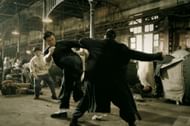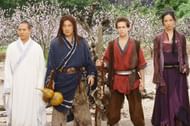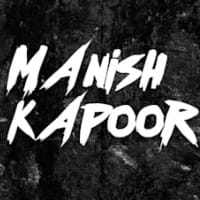Karate Kid: Legends (2025) re-ignited global excitement for underdog stories that balance heartfelt mentorship with jaw-dropping fight choreography. By pairing Jackie Chan’s kung-fu wisdom with Ralph Macchio’s iconic karate legacy, the film reminded audiences why the franchise has thrived for four decades.
Viewers who left the theater hungry for more fluid kicks, disciplined training montages, and culture-clash redemption arcs now have a perfect excuse to explore the wider martial-arts cinematic universe.
From Hong Kong wirework to Hollywood tournaments, The Karate Kid, Bloodsport, and more, echo Karate Kid: Legends’ themes of mentorship, overcoming adversity, and blending fighting styles, each delivering action, humor, and the thrill of crane kicks and comeback victories.
Disclaimer: The following movies are ranked in no particular order. This article solely contains the writer’s opinion.
7 must-watch martial arts movies for fans of the Karate Kid: Legends
1) The Karate Kid (1984)

Daniel LaRusso (Ralph Macchio) moves from New Jersey to the San Fernando Valley, where he quickly becomes a punching bag for the Cobra Kai dojo. Apartment handyman Mr. Miyagi (Pat Morita) reluctantly trains him using unorthodox chores that secretly build muscle memory, culminating in one of cinema’s most famous tournament showdowns.
Morita’s Oscar-nominated performance teaches that karate should be used for defense only, a creed Karate Kid: Legends revives when Mr. Han (Jackie Chan) mentors Li Fong (Ben Wang). The 1984 film’s crane kick, endlessly parodied yet still thrilling, shows how simple storytelling can make an ordinary teen feel mythic.
Beyond nostalgia, the film’s emphasis on cross-cultural friendship and understated grief re-articulates Karate Kid: Legends’ narrative anchor. Both movies remind viewers that martial arts are, at heart, vehicles for emotional healing. Fists score points, but hearts win wars.
Where to watch: Hulu
2) Drunken Master (1978)

Rebellious street fighter Wong Fei-hung (Jackie Chan) is shipped off to train under the tough Su Hua Chi (Yuen Siu-Tin), who molds him into a lethal practitioner of the forbidden “drunken boxing” style. Wong’s journey forces him to confront an assassin hired to kill his father while embracing the discipline hidden in apparent debauchery.
The “drunken fighting” style matches the innovative choreography Karate Kid: Legends celebrates when kung fu’s fluidity meshes with karate’s hard strikes. Viewers seeking early mentor energy like Mr. Han’s will delight in how Beggar So pushes Wong beyond the limits of propriety and pain.
Wong’s transformation from an impulsive adolescent to a strategic fighter is a spiritual sibling to Li Fong’s arc, proving that advancement often demands surrender to something that looks ridiculous from the outside.
Where to watch: Amazon Prime Video
Also read: Karate Kid: Legends ending explained: Key moments & final fight explained
3) Bloodsport (1988)

U.S. Army captain Frank Dux (Jean-Claude Van Damme) slips off the grid to join the clandestine Kumite, an anything-goes martial-arts tournament hidden in the back alleys of Hong Kong. With a centuries-old ninjutsu upbringing, Dux fights through broken bones and vendettas to defend his mentor’s honor against a brutal, ruthless opponent.
Bloodsport popularized the underground tournament trope that every Karate Kid sequel flirts with, amplifying violence yet preserving the protagonist’s integrity. Van Damme’s performance balances humility with spectacle, embodying the same “fight fair despite chaos” code Li Fong shows against Connor (Aramis Knight) in Karate Kid: Legends.
True to the decade’s gritty aesthetic, Bloodsport does away with PG ratings and amps up the pumping synth score, but its moral heartbeat remains recognizable: fighters grow strongest when they channel pain into purpose.
Where to watch: Amazon Prime Video
4) Never Back Down (2008)

After his father’s DUI death, talented but angry football player Jake Tyler (Sean Faris) moves to Orlando, Florida, and finds himself challenged by an underground mixed-martial-arts scene. Under a seasoned trainer coaching from his backyard gym, Jake must control his rage to defeat the arrogant Ryan McCarthy (Cam Gigandet) in a high-stakes brawl.
Karate Kid: Legends shares the mentor duo template of Mr. Han and Daniel, but Never Back Down follows a single grizzled coach, making it an ideal companion piece for exploring variations on the classic guide figure. Its glossy visuals and pounding soundtrack make for a modern experience. Yet it preserves the Karate Kid franchise’s core morality: unregulated combat reveals character.
Watching Jake learn that humility is stronger than fury mirrors Li Fong’s realization that kung-fu flow and karate precision must coexist, not compete.
Where to watch: Starz, Hulu
5) Kung Fu Panda (2008)

Po (Jack Black), an overweight noodle-shop panda with zero athletic background, is improbably declared the Dragon Warrior and must train under Master Shifu (Dustin Hoffman) to protect the Valley of Peace. Through dumpling-motivated drills and the discovery of his own unique style, Po confronts the treacherous snow-leopard Tai Lung (Ian McShane).
Po’s struggle to blend his rotund physique with high-flying kung-fu philosophy recalls Li Fong’s challenge of unifying two hardline disciplines, while Shifu’s reluctant mentorship echoes both Miyagi’s reserve and Mr. Han’s initial skepticism.
Despite its cartoon veneer, Kung Fu Panda treats discipline and self-belief with serious reverence. Its training sequences bear legitimate martial-arts technical consulting that will satisfy eagle-eyed practitioners.
Where to watch: Peacock
Also read: 7 best survival movies to watch if you like The Last of Us
6) Ip Man (2008)

Set in 1930s Foshan, the biographical drama follows serene Wing Chun master Ip Man (Donnie Yen) as he refuses to compromise his principles under Japanese occupation. Calmly dismantling imperial officers and defending local pride, Ip Man redefines martial arts as a tool of cultural resistance rather than mere self-defense.
Yen’s understated charisma embodies the Confucian ideal of quiet strength, foreshadowing Chan’s restrained mentorship style in Karate Kid: Legends. Ip Man’s historically grounded setting elevates stakes beyond personal victory, suggesting that one fighter’s integrity can symbolize national resilience.
Where to watch: Peacock
7) The Forbidden Kingdom (2008)

Boston teenager Jason Tripitikas (Michael Angarano) stumbles upon a magical staff that transports him to mythic ancient China. Joined by drunken immortal Lu Yan (Jackie Chan) and vengeful warrior Golden Sparrow (Liu Yifei), Jason learns kung fu during a quest to free the imprisoned Monkey King, confronting the malevolent Jade Warlord (Wang Deshun) along the way.
This was the first on-screen collaboration between Jackie Chan and Jet Li, making it indispensable for fans enthralled by Chan’s Mr. Han mentorship in Karate Kid: Legends. Fans of martial-arts fusion will revel in fights where Wudang sword forms meet Northern Shaolin staff work.
It’s a visual shorthand for Li Fong’s eventual blend of karate and kung fu. Fantastical set pieces aside, The Forbidden Kingdom never loses sight of the same moral calculus that powers Karate Kid movies: skill without virtue invites catastrophe.
Where to watch: Amazon Prime Video
Also read: 7 time-travel movies that every sci-fi fan should watch
Whether viewers crave nostalgic crane kicks, wire-assisted Shaolin fantasy, or MMA mat burns, these seven films collectively trace the genetic code that culminates in Karate Kid: Legends. From Miyagi’s gentle proverbs to Beggar So’s wine-soaked wisdom, each mentor offers complementary philosophies that now inform Mr. Han and Daniel’s dual mentorship of Li Fong.
